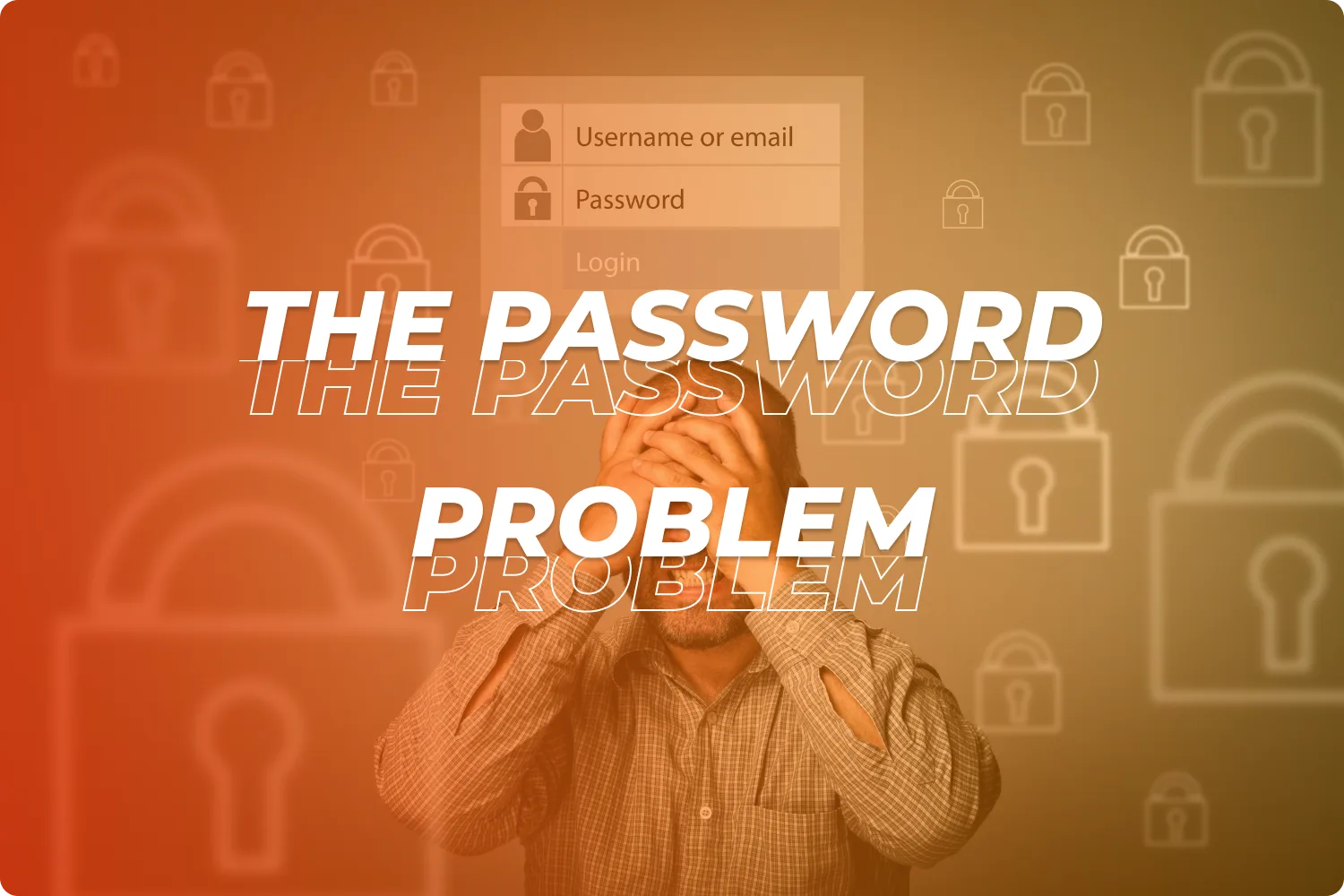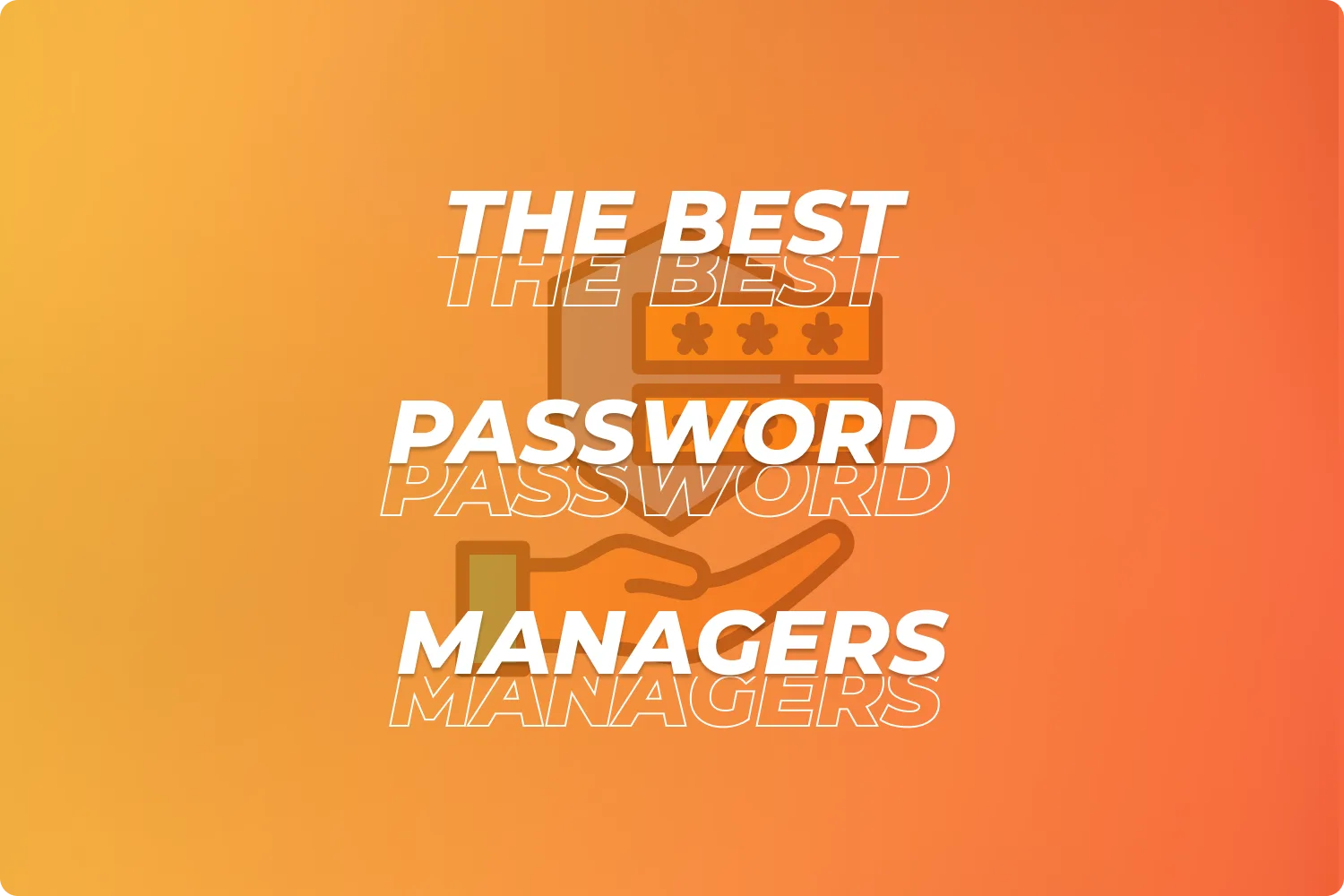Just last week, I was sitting across from a client in their Singapore office as they walked me through a near-disaster. The kind that’s becoming alarmingly familiar. They had come within inches of losing a major contract, all because of one reused password.
Here’s what happened: An employee had used the same login credentials for their work email and a personal shopping account. When that shopping site was breached, the attackers gained access to more than just their purchase history — they had a clear shot at the company’s internal systems.
Fortunately, the IT team noticed suspicious login activity early and acted fast. No damage was done this time. But the breach came dangerously close to being catastrophic.
This kind of thing happens more than you'd think. Verizon's 2024 Data Breach Investigations Report tells us that roughly 22%-28% of breaches involve compromised credentials. And here in Singapore, Hong Kong, and across APAC? Well, we're not immune. Actually, we might be bigger targets than ever.
The Password Problem That's Hitting APAC Businesses Hard
I’ve spent the past two decades working with B2B companies across APAC, helping them navigate all sorts of tech challenges. And I’ll be honest—password issues used to be nothing more than a nuisance. But those days are gone. Now? They come with a price tag. A steep one.
Just look at how the workplace has changed. Your team probably isn’t all sitting in the same office anymore. These days, people are logging in from home, coffee shops, airports and maybe someone’s checking analytics from a café in Bali while another team member is on Slack from a WeWork in Central. And everyone’s accessing shared platforms, tools, dashboards. Often with shared passwords.
Here’s a situation I run into more often than I’d like: The marketing manager urgently needs to post something on the company’s social media scheduler. But the person who has the login? They’re halfway through a yoga retreat in Ubud. So, what happens next? Someone digs out the password and sends it over email. Or worse, drops it in WhatsApp. Just like that, it lives forever on a dozen devices, in unencrypted chat histories, exposed to risks nobody intended.
The numbers are scary. IBM says the average data breach in APAC costs businesses about $3.05 million USD. For smaller companies, the ones that make up most of our economy here, even a tenth of that could mean closing down.
So, What Exactly is a Password Manager?
When clients ask me about password managers, I like to keep it simple. Think of it like hiring the world's best security guard. This guard remembers every single key to every door in your building. They make new, super-strong locks whenever you need them. They keep track of who goes where. And if someone quits? They change all the relevant locks immediately.
That's basically what these tools do for your digital life. Yes, they store passwords, but that's like saying a Swiss Army knife just cuts things. There's so much more going on.
The Features That Actually Matter
After helping dozens of companies set these up, I know which features make a real difference:
Strong Password Creation – Remember "Company123!" as a password? Yeah, those days are over. Now we're talking passwords like "x7#mP9$vK2@nQ5*rT8." Impossible to remember, impossible to crack. And that's the point.
Military-Grade Encryption – Your passwords get scrambled on your own device before going anywhere. So even if someone hacked the password manager company (which is incredibly unlikely), they'd just get meaningless gibberish.
Smart Sharing – Need to give a freelancer access to your analytics tool? You can do it without them ever seeing the actual password. Project done? One click and they're out.
Multi-Factor Authentication – According to Microsoft's security research, adding this second security layer blocks 99.9% of automated attacks. That's not a typo—99.9%.
Dark Web Monitoring – Some tools actively scan the sketchy parts of the internet to see if your credentials show up. It's like having a security team watching for your stolen goods at every pawn shop in town.
The Money Side Nobody Talks About
Most business owners don’t realize just how much time passwords quietly drain from their teams. Between forgotten logins, reset requests, and delays caused by password lockouts, the hours add up fast. In many companies, IT departments report that a significant chunk of their support time, sometimes up to half, is spent dealing with password-related issues.
Even if each employee only loses a few minutes here and there, across a 50-person company that easily becomes hundreds of hours a year. That’s time your team could spend on actual work and money that could go toward hiring, training, or upgrading your systems. When you zoom out, it’s clear: unmanaged passwords aren’t just a security risk, they’re a hidden cost center.
Why 2025 Is Different for APAC Businesses
The way we work has changed, probably forever. Remote work isn't a temporary thing anymore, it's how we attract and keep good people. But with that flexibility comes risk.
The Regulations Are Getting Stricter
Regulations in our region now have significant enforcement power. In Singapore, the Personal Data Protection Act (PDPA) allows the authorities to impose fines of up to SGD 1 million or 10% of an organization’s annual turnover in Singapore, whichever is higher, for serious data breaches.
In Hong Kong, the Personal Data (Privacy) Ordinance (PDPO) imposes criminal penalties for non-compliance, including fines up to HKD 1 million and imprisonment for up to five years for the most serious offenses, such as doxxing or non-compliance with enforcement notices. Lesser breaches can still result in fines up to HKD 50,000 or HKD 100,000 and imprisonment for up to two years. Both jurisdictions have demonstrated a willingness to actively enforce these rules, with recent cases resulting in substantial fines and even imprisonment for violations.
Here's how password managers help with compliance:
- They create audit trails automatically (regulators love documentation)
- They make it easy to follow ISO 27001's access control requirements
- Many offers local data storage to meet residency rules
Your Team Isn't Just Your Employees Anymore
Modern teams are complicated. I recently helped a fintech that had 30 employees but over 50 external people needing system access. Contractors, agencies, freelancers, it's a lot to manage.
Password managers handle this mess by letting you:
- Give time-limited access
- Set role-specific permissions
- Cut off access instantly when contracts end
- Actually see who has access to what (revolutionary, I know)
People Will Be People
Look, we need to be realistic. Even smart, careful people do dumb things when they're stressed. I've watched executives, even experienced professionals, write passwords on Post-it notes because they're rushing to a meeting.
Password managers work because they remove the temptation to take shortcuts.
The Best Password Managers for APAC Teams in 2025
I've tested pretty much everything out there. Here are the five that consistently deliver for businesses in our region.
LastPass Teams: For Companies That Need Something Now
LastPass is popular for a reason. You can literally get your whole team set up in under an hour. For busy SMEs, that's huge.
What You Get:
- Browser extensions that just work
- A control panel that makes sense
- Automatic password saving (no training needed)
- Dark web monitoring that's actually useful
- Folder sharing with proper controls
My Experience: Set this up for a 40-person agency in Hong Kong recently. Their password-related IT tickets dropped 78% in two weeks. Why? Because the tool is so intuitive, even their least tech-savvy staff figured it out immediately.
The Good Stuff:
- Almost no learning curve
- Works great with all browsers
- Affordable for smaller teams
- Support actually answers during Asia hours
The Not-So-Good:
- They had a security issue in 2022 (handled well, but still)
- Big price jump for enterprise features
- Mobile apps are just okay
Perfect for: Companies that need better security yesterday and require rapid, low-friction deployment.
1Password Business: The One Designers Love
1Password is just... nice to use. I know that sounds trivial, but when you need staff to actually adopt a security tool, design matters.
What Makes It Special:
- Watchtower dashboard that actually helps
- Travel Mode (more on this below)
- Stores documents, not just passwords
- Apps that feel expensive (in a good way)
- Sharing links that expire
The Killer Feature: Travel Mode is genius for our region. Going through customs in certain countries? Hide sensitive vaults temporarily. Clear customs, restore everything with one tap. Brilliant.
Why Teams Like It:
- Beautiful design means people actually use it
- Great family plans as an employee perk
- Extra security with their Secret Key system
- They publish their security audits
The Downsides:
- You pay for that premium feel
- No self-hosting (dealbreaker for some)
- Admin features are somewhat basic
Perfect For: Creative teams, tech companies, anywhere that user experience trumps everything else
Dashlane for Business: Your Security Health Monitor
Dashlane isn't just storing passwords, it's actively helping you get more secure. Think of it as a fitness tracker for your company's security.
Smart Features:
- Password Health scores for the whole team
- Built-in VPN for sketchy Wi-Fi
- Changes passwords automatically on many sites
- Alerts when your data shows up in breaches
- Identity protection features
What I Like: The dashboard shows CEOs exactly how their security improves over time. I've seen executives go from skeptics to advocates just by watching their company's Security score improvement.
Strengths:
- Pushes you to improve, not just maintain
- Smooth setup process
- VPN adds real value for remote teams
- Works reliably everywhere
Weaknesses:
- Limited VPN servers in some APAC spots
- Gets pricey as you grow
- Some features are overkill for basic needs
Perfect For: Companies serious about understanding and improving their security stance
Bitwarden Teams/Enterprise: The Transparent Choice
Bitwarden is fascinating—it's completely open source. For IT departments that want to audit every line of code, this is the holy grail.
Technical Goodies:
- See all the source code
- Host it yourself if needed
- APIs for custom integrations
- Syncs with Active Directory/LDAP
- Detailed permission controls
Why This Matters: I helped a Singapore healthcare company deploy Bitwarden on their own servers. Result: data residency requirements fully met, security team happy, regulators satisfied.
Advantages:
- Incredible value for money
- You control your data completely
- Community constantly improving it
- No vendor lock-in worries
Trade-offs:
- Interface is functional, not beautiful
- Self-hosting needs technical chops
- Mobile apps are basic
- Support can be hit-or-miss
Perfect For: Technical teams, regulated industries, anyone who values transparency and control
Keeper Business: When Compliance Is Everything
Keeper built their reputation in regulated industries. If you deal with regular audits or handle sensitive financial/health data, this is worth the premium price.
Compliance Features:
- SOC 2, ISO 27001, HIPAA certified
- Audit reports that regulators love
- BreachWatch monitoring
- Up to 1TB encrypted storage
- Biometric authentication
- Detailed role controls
Real Impact: A financial services client saved dozens of hours during their annual audit because Keeper had already documented everything the auditors wanted. Every login, every permission change, every security event—all ready to export.
Strong Points:
- Best-in-class compliance tools
- File storage included
- Dedicated account managers
- Frequent security audits
Considerations:
- Pricing gets complex with add-ons
- Probably too much for simple needs
- Takes time to learn properly
Perfect For: Banks, healthcare, law firms, anyone facing serious compliance requirements
| Tool | Best For | Key Strengths | Potential Drawbacks | Pricing (Estimated) |
|---|---|---|---|---|
| LastPass Teams | Fast setup for SMEs | Easy onboarding, browser-friendly, dark web alerts | Past breach concerns, basic mobile apps | $4.25/user/month (≤50 users, annual) |
| LastPass Business | Larger teams needing admin control | Unlimited users, admin console, advanced sharing | Higher price tier than Teams plan | $7/user/month (annual) |
| 1Password Business | UX-focused teams (design, dev, creative) | Travel Mode, polished UI, secure sharing | No self-hosting, admin features somewhat basic | $7.99/user/month (annual) |
| Dashlane Business | Security-focused growing companies | Password health score, VPN, breach alerts | VPN limited in APAC, price scales with size | Per user/month, unlimited seats |
| Bitwarden Teams / Enterprise | Tech-savvy & regulated orgs | Open-source, self-hosting, granular permissions | Less refined UI, self-hosting requires expertise | $4 (Teams) / $6 (Enterprise) per user/month |
| Keeper Business | Compliance-heavy sectors (finance, healthcare) | Advanced reports, file storage, regulatory compliance | Complex pricing structure, steeper learning curve | ~$3.75/user/month (annual) |
| Tool | Best For | Key Strengths |
|---|---|---|
| LastPass Teams | Fast setup for SMEs | Easy onboarding, browser-friendly, dark web alerts |
| LastPass Business | Larger teams needing admin control | Unlimited users, admin console, advanced sharing |
| 1Password Business | UX-focused teams (design, dev, creative) | Travel Mode, polished UI, secure sharing |
| Dashlane Business | Security-focused growing companies | Password health score, VPN, breach alerts |
| Bitwarden Teams / Enterprise | Tech-savvy & regulated orgs | Open-source, self-hosting, granular permissions |
| Keeper Business | Compliance-heavy sectors (finance, healthcare) | Advanced reports, file storage, regulatory compliance |
| Tool | Potential Drawbacks | Pricing (Estimated) |
|---|---|---|
| LastPass Teams | Past breach concerns, basic mobile apps | $4.25/user/month (≤50 users, annual) |
| LastPass Business | Higher price tier than Teams plan | $7/user/month (annual) |
| 1Password Business | No self-hosting, admin features somewhat basic | $7.99/user/month (annual) |
| Dashlane Business | VPN limited in APAC, price scales with size | Per user/month, unlimited seats |
| Bitwarden Teams / Enterprise | Less refined UI, self-hosting requires expertise | $4 (Teams) / $6 (Enterprise) per user/month |
| Keeper Business | Complex pricing structure, steeper learning curve | ~$3.75/user/month (annual) |
Making It Actually Work: Your Implementation Plan
I've overseen enough rollouts to know what works. Here's the playbook:
Weeks 1-2: Figure Out What You Need
First, face reality. One client discovered they were juggling 400+ shared accounts. Some passwords were "admin123." Others lived in a company-wide Google Sheet. Clearly a security concern.
Do this:
- List every shared account
- Ask employees what drives them crazy about passwords
- Check your compliance requirements
- Decide how you'll measure success
Weeks 3-4: Start Small
Pick your most tech-comfortable department for a pilot. They'll help you work out the kinks and become your internal champions.
Pilot essentials:
- Configure admin settings properly
- Import existing passwords (where possible)
- Run hands-on training sessions
- Get feedback daily and adjust
Weeks 5-8: Roll Out Smartly
Go department by department. Don't do everyone at once—that's asking for chaos.
What works:
- Make video guides for your specific workflows
- Set clear password policies
- Automate new employee setup
- Appoint champions in each team
Week 9 and Beyond: Keep the Momentum
The first three months make or break your success. Stay on top of it.
Keep doing:
- Monthly security reviews
- Password hygiene reminders
- Celebrate improvements
- Train on new features as they come
Mistakes I See Over and Over
Learn from others' failures:
"We'll Set It Up and Forget It"
Wrong. Schedule quarterly check-ins for:
- Who's actually using it?
- How many weak passwords remain?
- Who's sharing what?
- Did we remove ex-employee access?
Underestimating the Human Side
The tech is the easy part. Changing habits? That's hard. Try:
- Show how it protects their personal stuff too
- Make it a game between departments
- Host security lunch sessions
- Recognize your top security performers
Shopping by Price Tag Only
The cheapest option often becomes expensive when you factor in:
- Setup time
- Training needs
- Support quality
- Future growth
Forgetting About Integration
Your password manager needs to play nice with:
- Your SSO (if you have one)
- The apps your team uses daily
- Mobile device management
- Whatever you're planning next
The FunctionEight Difference
Choosing a tool is step one. Making it successful? That's where experience matters. FunctionEight brings twenty years of helping APAC businesses get this right.
We handle:
- Complete security assessment
- Hands-on setup and configuration
- Training that sticks
- Ongoing support and tweaks
- Industry-specific compliance help
Our experience shows that professional implementation support makes a significant difference in password manager adoption rates. Many businesses struggle with self-implementation due to lack of change management expertise or technical configuration knowledge. With proper guidance, training, and ongoing support, organizations typically see much higher adoption rates and better security outcomes.
Time to Stop Gambling with Your Security
Every day you wait is another day of unnecessary risk. The cost of a good password manager? It's nothing compared to a breach. And the productivity gains alone usually pay for it.
FunctionEight offers free security assessments for qualified businesses. We'll look at your current setup, spot the vulnerabilities, and build a realistic plan to fix them.
Don't let a breach be your wake-up call. Contact FunctionEight and join the APAC businesses that have turned password security into a competitive edge.
Your Next Move:
- Book your free security assessment
- Get your custom implementation plan
- Transform your security in 90 days or less
The decisions you make about security today shape your business tomorrow. Make the smart choice—reach out to FunctionEight and let's build your secure digital future together.









